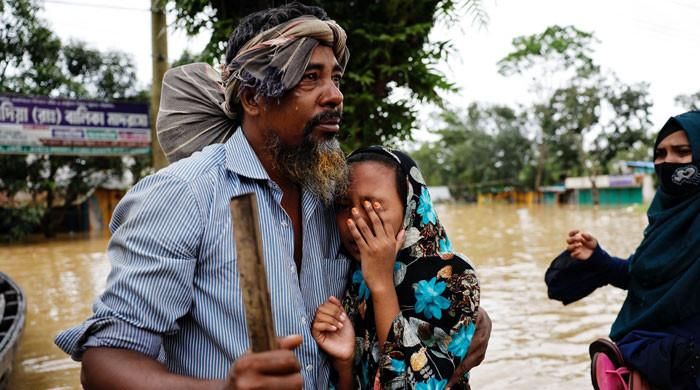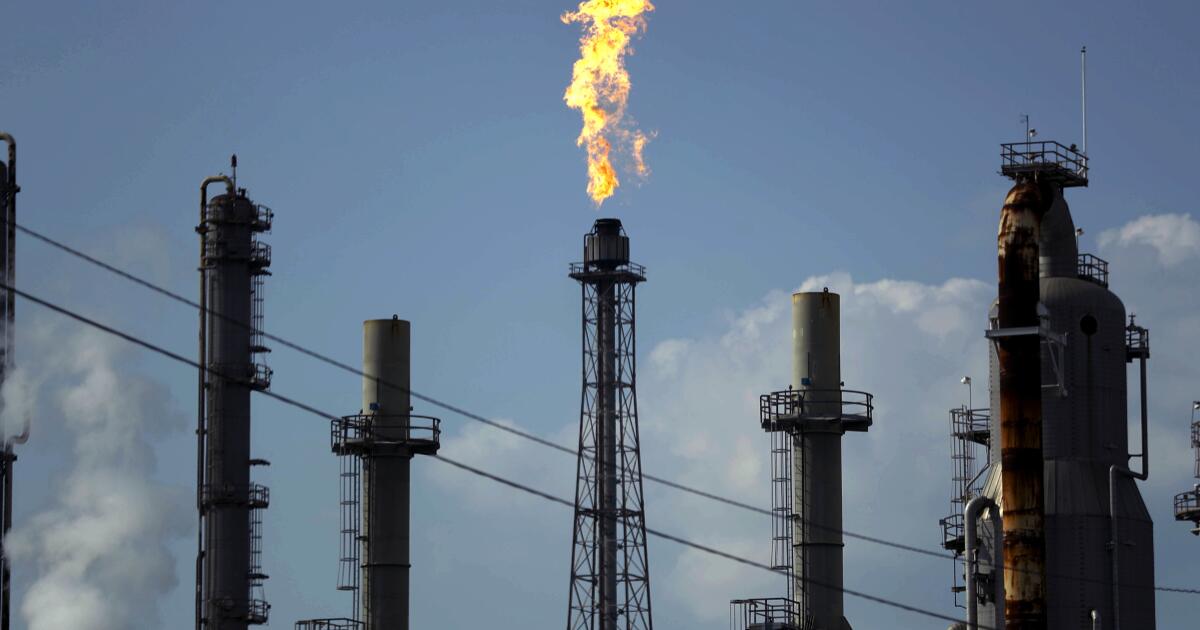- Flooding could persist if monsoon rains continue, the Met Office says.
- 650 medical teams on the ground to provide treatment to those affected.
- Some 470,000 people are seeking refuge in 3,500 shelters.
The death toll from devastating floods caused by incessant monsoon rains and overflowing rivers in Bangladesh has risen to 23, with around 1.24 million families stranded in 11 districts, authorities said Monday.
As floodwaters slowly recede, many of the 5.7 million people affected remain isolated and in urgent need of food, clean water, medicine and dry clothing, especially in remote areas where blocked roads have hampered rescue and relief efforts.
The Bangladesh Meteorological Department said flood conditions could persist if monsoon rains continued as water levels were receding very slowly.
Some 470,000 people have taken shelter in 3,500 shelters in flood-hit districts, where some 650 medical teams are on the ground to provide treatment, while the South Asian country's army, air force, navy and border guard are helping with rescue and relief operations, officials said.
Large tracts of land are submerged, posing a major threat to crops if flood waters persist for an extended period, agriculture ministry officials said.
A 2015 analysis by the World Bank Institute estimated that 3.5 million people in Bangladesh, one of the most climate-vulnerable countries, were at risk of annual river flooding. Scientists attribute the exacerbation of these catastrophic events to climate change.
“Countries like Bangladesh, with negligible emissions and people who have shown great resilience, deserve immediate funding to address the impacts of climate change and frequent disasters,” said Farah Kabir, Director of ActionAid Bangladesh.
“We need to recover from the losses and damage we have suffered, as well as build resilience to future shocks and adopt green development paths.”
In one of the worst-affected districts, Noakhali, 56-year-old Shukuri Begum lost her home, which was swept away into a pond by floodwaters, according to ActionAid. Terrified, she fled with her grandchildren to a neighbour's house, but could not stay there for long because it was no longer safe.
“I have a physically disabled son and we couldn't bring him with us. We had to stack beds and leave him on top, hoping he would be safe. I don't know what awaits us,” she told ActionAid.












